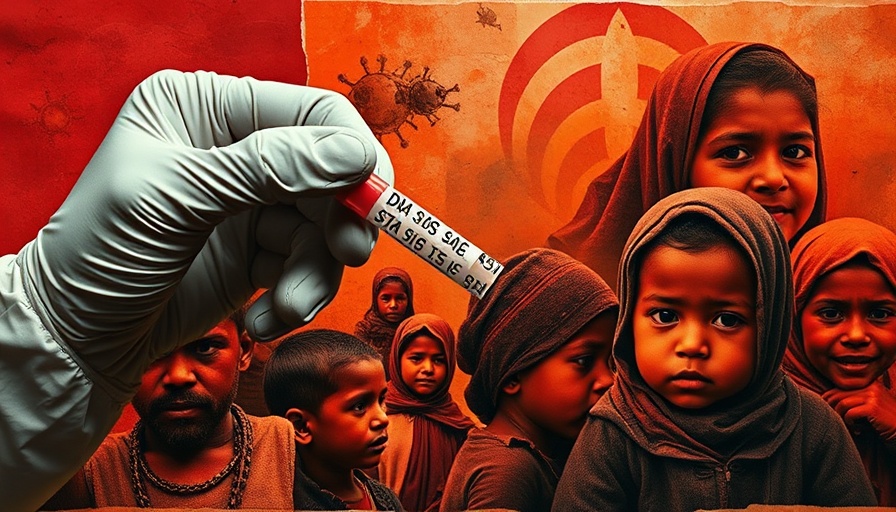
The Deepening Crisis: Why Storing Migrant Children’s DNA Matters
The recent revelations that the U.S. government is storing DNA from migrant children in a criminal database are disturbing. Over the past four years, Customs and Border Protection (CBP) has collected DNA samples from more than 133,000 minors, including children as young as four years old. This extensive surveillance of one of society's most vulnerable populations raises questions about privacy, ethics, and the implications of such practices on civil liberties.
Historical Context of Biometric Surveillance
Biometric surveillance has evolved significantly in recent decades. Originally used primarily for law enforcement in serious criminal investigations, it has expanded into areas that include border control and immigration enforcement. The CBP's program to collect DNA from migrants reflects a growing reliance on technology to manage populations deemed high-risk, usually based on nationality or immigration status.
This extensive DNA collection strategy is not merely about gathering information; it marks a shift in policy towards viewing migrants as potential criminals rather than individuals seeking safety or opportunity. The implications of such a shift resonate far beyond individual cases, suggesting a societal acceptance of invasive measures against marginalized groups.
Privacy and Ethical Implications
Storing young children's DNA in a database intended for criminals poses serious ethical concerns. The Department of Justice argues that these measures are necessary to assess risks posed by individuals. However, experts and human rights advocates warn that such a policy could lead to unwarranted profiling and discrimination against these children as they grow up, potentially categorizing them as future criminals based solely on their DNA.
This raises significant privacy concerns as well. Once DNA is collected, it can be used to track individuals for years to come. The potential misuse of this information deepens the ethical dilemma and raises alarms about how agencies like the FBI handle sensitive genetic data. The lack of clear regulations surrounding the indefinite storage of DNA only adds to these worries.
Counterarguments and Diverse Perspectives
Supporters of the DNA collection program emphasize the need for public safety and argue that the data could assist in solving future crimes. They contend that by having access to genetic information from migrants, authorities can preemptively identify potential dangers. However, this perspective fails to acknowledge organizations advocating for migrant rights, who assert that the fundamental purpose of collecting DNA must not infringe on an individual’s rights, especially those of children who are inherently vulnerable.
Future Predictions: The Risk of Normalization
As authorities continue to normalize biometric surveillance among vulnerable communities, we may witness an incremental decline in civil liberties. If parents and guardians become aware that their children's DNA can be registered and possibly misused by law enforcement, it could deter individuals from seeking help or protection when needed.
The normalization of such invasive practices may also set a precedent for expanding surveillance and collection methods in other areas, posing a risk to broader democratic values and personal freedoms.
Practical Insights: Informed Actions for Advocates
To counter this growing trend, advocacy groups must not only raise awareness but also push for policy changes that protect the rights of children and migrants. Public campaigns focused on the privacy implications of DNA collection in the context of immigration should be a priority.
Moreover, strategies that include legal challenges, grassroots mobilization, and digital campaigns are vital in resisting systematic abuses of power that can arise from unchecked biometric surveillance.
Conclusion: A Call for Responsibility
The concerning practice of collecting and storing DNA from migrant children in criminal databases emphasizes the urgent need for dialogue on privacy, ethics, and children’s rights. As technologic advancements reshape our capabilities, we must remain vigilant and advocate for policies that prioritize human dignity and civil liberties above surveillance practices.
 Add Row
Add Row  Add
Add 




Write A Comment